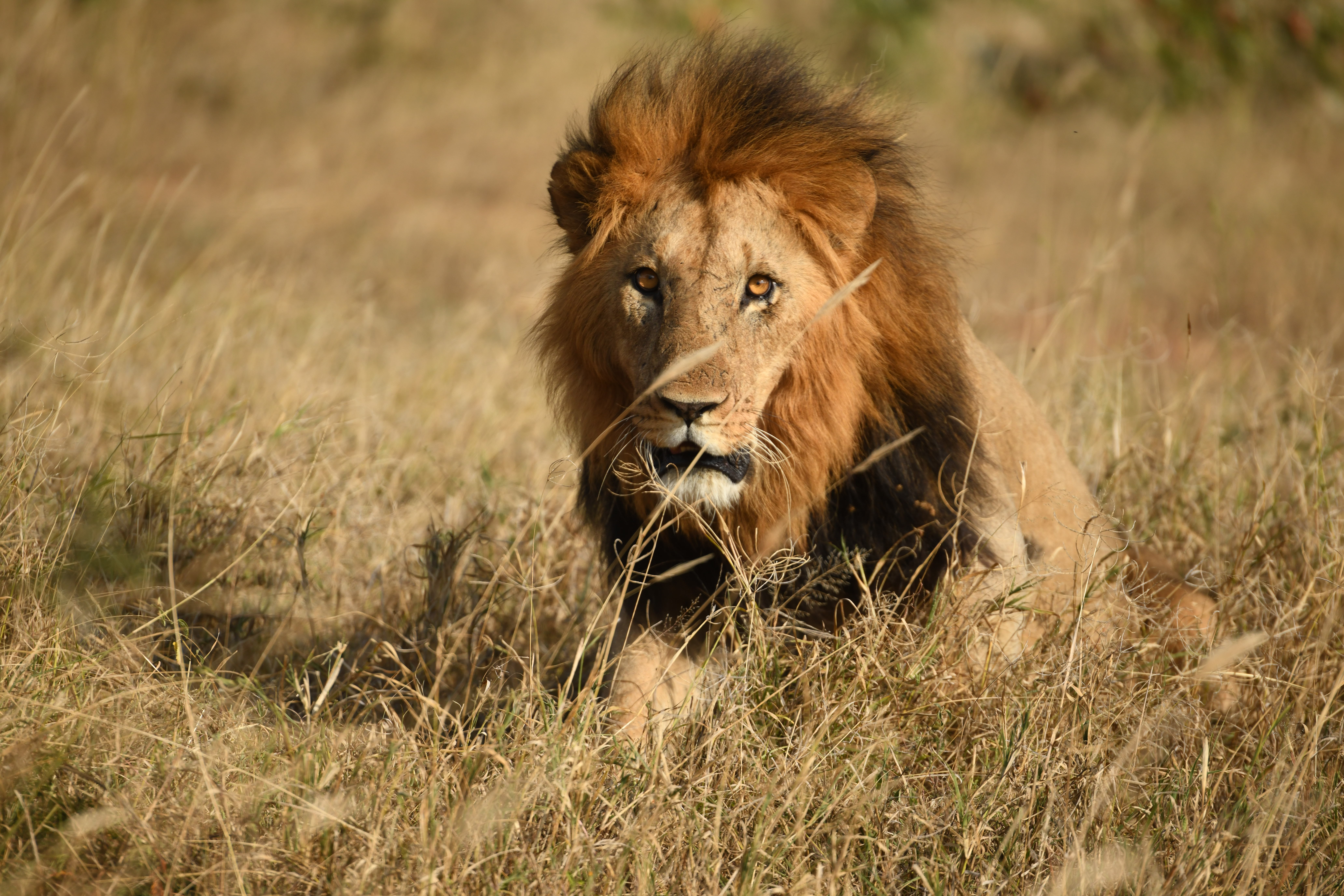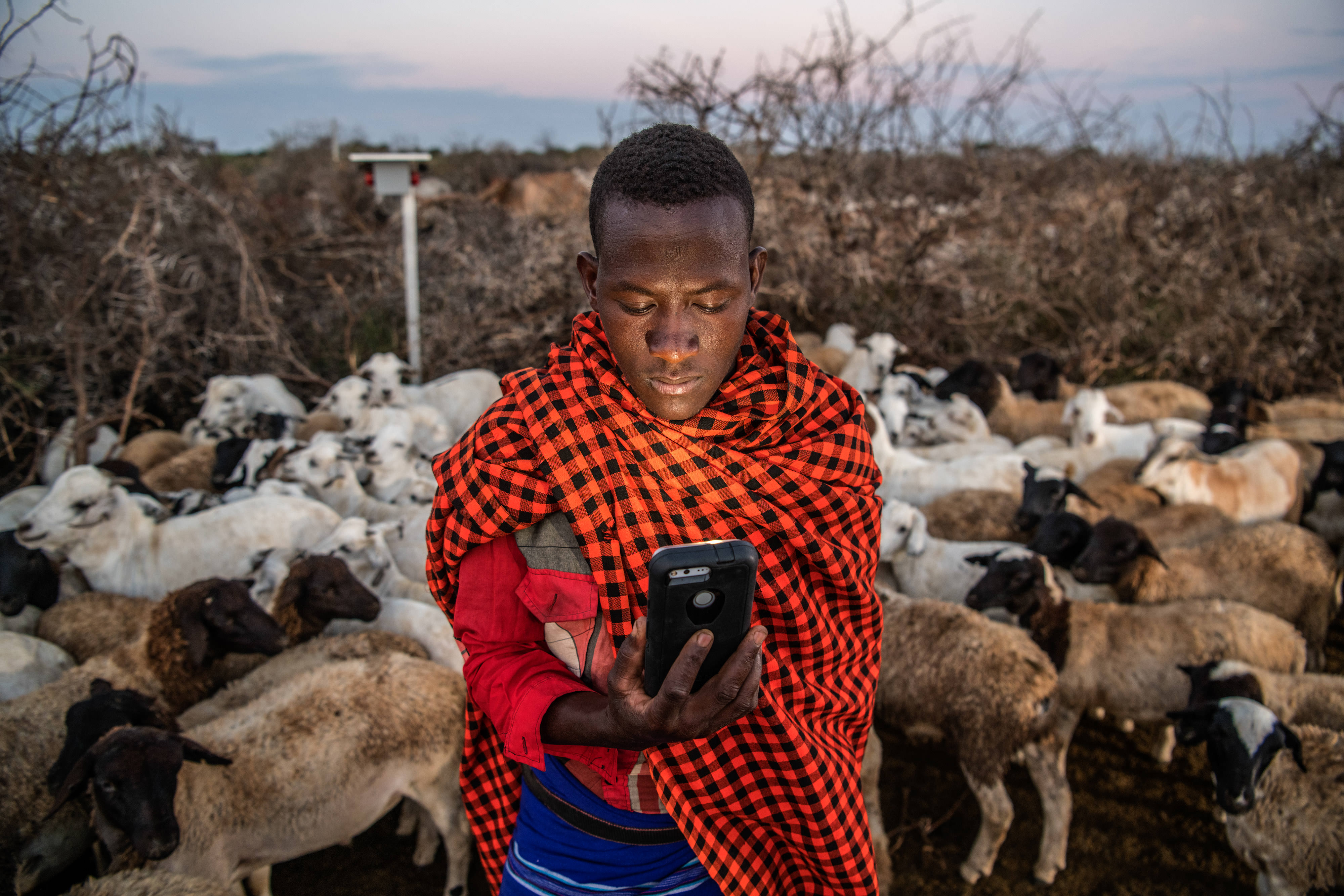High Tech Tools Protect Lions and Livelihoods
GPS collars, alarm systems, and mobile apps help lions and people coexist in northern Kenya
When we think about lions, we need to think big: big habitat needs, big appetites, and big declines in their populations. So when it comes to protecting lions, we have to take big actions — and we can’t do it alone. While TNC can bring expertise on protecting large swaths of prime lion habitat, we’re supporting partners who have big ideas on how people and lions can live together more successfully in this increasingly shared landscape.
A new project with Lion Landscapes and other partners at Loisaba Conservancy is using technology to prevent livestock attacks before they happen. By reducing the number of livestock that are killed by lions, we can reduce the number of lions who are killed in return and create a cycle of peaceful coexistence.

Large, wide-ranging carnivores like lions are normally one of the first mammal species to be lost in areas shared with people and livestock. Their presence in a human-dominated landscape like northern Kenya is a symbol of successful coexistence. As apex predators, lions play a vital role in maintaining a healthy, balanced ecosystem, impacting everything below them, from soil nutrients and disease, to plant, prey, and scavenger populations. If lions are doing well, the entire ecosystem is likely doing well. In the long term, that means the ecosystem will be better able to support the people that also rely on it.

Loisaba Conservancy rangers, trained and equipped by Lion Landscapes to become Lion Rangers provide boots on the ground, monitoring lion movements closely, preempting human-carnivore conflict by warning livestock owners of the lions’ whereabouts and shadowing lions when they move into areas with high risk of conflict. They also serve as ambassadors for wildlife, educating and supporting local livestock owners on conservation initiatives.

In Laikipia, livestock owners are finding new ways to live peacefully with lions, leopards, hyenas, and wild dogs. Lion Landscapes works to support these livestock owners wherever possible. For example, the Lion Rangers are trained to visit bomas, spot practices that could make livestock vulnerable to lion attacks, and help herders better guard their livestock.

It takes the efforts of many different organizations working together to protect lions in northern Kenya. Kenyan tech company Savannah Tracking is developing an alarm that will blast sound and flash lights when a lion collared by Lion Landscapes approaches. Livestock owners like Issak Kosgei are also armed with a mobile phone app created by Save the Elephants and Vulcan Inc. that gives them access to real-time collared lion movements. This same app helps Lion Rangers keep track of the collared lions and prevent conflict. Knowledge of lion movements and non-violent methods to redirect them means fewer cows are lost and more lions are saved.

Tracking collars are carefully fitted to maximize the lion’s comfort. With more than 200 collars placed and 20 years of research in Laikipia, there has been no sign of injury or negative impact from the collars. On the contrary, a collar can save a lion’s life. And with less human-wildlife conflict, all species benefit.

Learning about lion ecology, research and management, and how to better protect livestock from lion attacks will help local students become champions for lions within the community and encourage them to seek the means to coexist.
Collaring for Coexistence
You can help Lion Landscapes raise funds for 40 rangers that will cover 400,000 acres.
Support the Lion Rangers